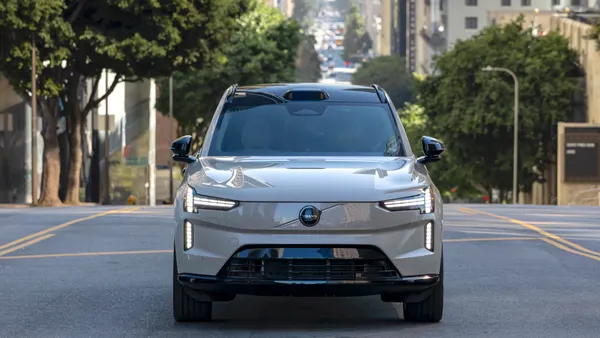Editor's note: This story is part of the WardsAuto digital archive, which may include content that was first published in print, or in different web layouts.
It may not have been intended as such, but QS-9000, the quality requirement of U.S. automakers, stands to rid the auto industry of dozens of small suppliers that are unable - or unwilling - to fully embrace the concept.
The industry launched QS-9000 in 1994 to give suppliers a standard, comprehensive procedure to follow for meeting the product quality targets demanded by General Motors Corp., Ford Motor Co. and Chrysler Corp.
The requirements have been tweaked, clarified and strengthened over the years to help suppliers with continuous improvement, defect prevention and waste reduction. The latest revision, the third edition handbook, was distributed to suppliers last year and took effect Jan. 1.
As in the past, QS-9000 certification is required only for Tier 1 suppliers. But the third edition encourages those companies to develop their suppliers (Tier 2 and lower) to become QS-9000 compliant or to find new suppliers who are.
In some cases, Tier 1s are requiring their suppliers to be QS-9000 certified before quoting new business. The logic is understandable: a Tier 1 cannot consistently meet OEM requirements without its vendors doing the same.
Eaton Corp., like many Tier 1s, already has been developing its supply base to meet QS-9000. But a recent internal study at its Actuator Sensor Div. found that the company still has plenty to do.
Eaton learned that less than half the division's suppliers - 43% - were compliant or soon to be compliant with QS-9000, 30% were in development toward certification, and 13% were registered in the lesser ISO 9001 or 9002 standard. The remainin+g 14% appear to be uninterested in QS-9000.
To this 14%, QS-9000 is probably a bureaucratic exercise in excessive paperwork that would require more people, more time and more money than a small business owner can afford.
To them, QS-9000 is not as simple as the credo says: Write what you do, do what you write and prove it. If they must, they will leave automotive, creating new opportunities at the lowest levels of the supply chain.
Glenn Gouldey, Eaton's general manager of the division, understands how some businesses could view QS-9000 as a burden.
"Some of these companies may already have good quality, but they just are not interested (in QS-9000)," Mr. Gouldey says. "We try to work with the ones who are interested. Some of them already have a quality process defined. It's just a matter of helping them get it down on paper."
But doesn't this added work raise the frustration level for Tier 1s already saddled with onerous cost reductions and struggling mightily just to make a buck? Mr. Gouldey doesn't like to think of QS-9000 in that way.
"It puts a consistent framework around what customers expect and what we expect of ourselves and our suppliers," he says. "Ultimately it should be less of a burden in the long run. Anyone with a long-term strategy to be an automotive supplier has taken it very seriously."
Another quality expert says most suppliers understand how committed U.S. automakers are to QS-9000.
"You hear people talking from the procurement side of the Big Three that they have found some vendors who haven't been QS-9000 registered, so they are looking for alternate sources," says Steven Obolewicz, a director at training and consulting firm Excel Partnership Inc. in Sandy Hook, CN. He has given technical support in quality management to Ford and DaimlerChrysler Corp.
"Suppliers have been told that if they're not up to speed quickly, they run the risk of not having follow-on contracts," Mr. Obolewicz says.
He says he's surprised by how many Tier 1s still are not certified more than a year after the last deadline (GM's, on Dec. 31, 1997) has passed. The American Society for Quality (ASQ) reports that about 9,200 suppliers across all tiers are certified, but it is not clear what percentage of Tier 1s remain uncertified.
There is no question that the process is expensive. The average cost to suppliers responding to a survey last year by ASQ and the Automotive Industry Action Group was about $118,000, but the estimated benefit was more than $304,000. The survey also found that most companies spent between 10 and 18 months achieving registration.
Quality guru Andy Herman, a GM retiree now doing consulting, agrees that pushing QS-9000 further down the tiers will drive some suppliers out of automotive and serves as job security for people like him who are engaged in quality control.
He says some of his clients take a dim view of the third-edition changes. Some see the U.S. automakers as wanting "the best insurance coverage possible but having their suppliers paying the premiums." Others see it as a "marriage with one of the parties wanting all the benefits of the relationship but expecting the mate to do all of the work."
Can this relationship last?









